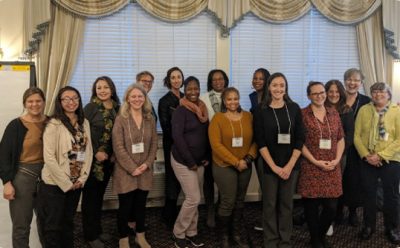Professionalism
Definition
Application of early childhood intervention and discipline-specific laws, policies, ethical standards, and practice guidelines by all service providers who take responsibility for continued learning through self-reflection and professional development, which they share with others through the teaching, mentoring, and coaching and demonstration of advocacy and leadership skills at the local, state, and national level.

Indicators
- Follows all IDEA and professional discipline policies, advocacy guidelines, ethics codes, and practice standards for early childhood intervention
- Demonstrates ethical decision making and professional behavior
- Demonstrates knowledge of one’s own discipline-specific practice standards and guidelines
- Demonstrates awareness of other discipline’s practice standards and guidelines for early childhood intervention
- Learns from, with, and about all team members within an interprofessional collaborative practice framework
- Uses self-reflection and professional development to stay in evidenced-based disciplinary and interdisciplinary practices
- Uses collaborative consultation practices when working with service providers and families
- Mentors teach and provide performance feedback and reflective supervision to other service providers
- Demonstrates disciplinary and interdisciplinary leadership skills at the service delivery, program administration, and systems-level of early childhood intervention
- Advocates at the local, state, and national level for high quality, timely, and effective early childhood intervention services to improve outcomes for children and families
Case Study
Case studies illustrate the cross-disciplinary competencies and are for use by Higher Education faculty and Professional development staff.
Case Study Maria - Professionalism